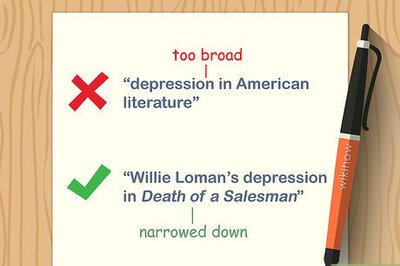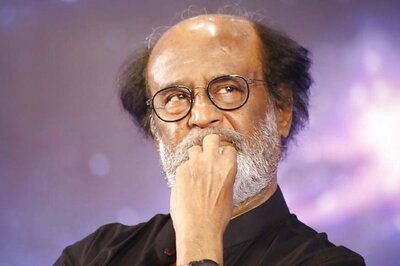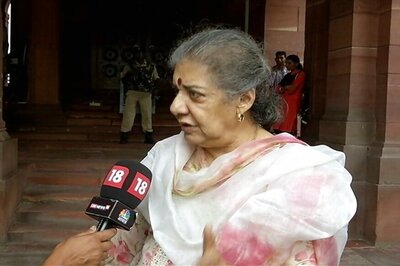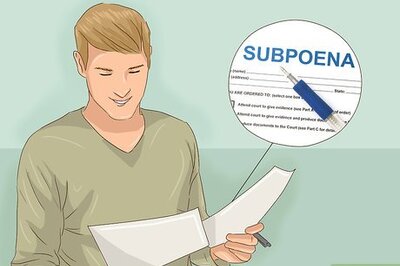
views
A slower-than-expected vaccine rollout and the rise of coronavirus variants may make attaining herd immunity against COVID-19 difficult, but that should not stop the economy from rebounding, according to a U.S. central banker Thursday.
“I don’t think the economy requires herd immunity,” Richmond Federal Reserve Bank President Thomas Barkin told Reuters Thursday. “Consumers who get vaccines, who have money in their pockets…are going to be free to spend,” he said.
Analysts have long predicted economic activity will pick up as more people are vaccinated, but hopes for a quick path to a fully immunized populace have faded amid vaccine shortages and other roadblocks. President Joe Biden said earlier this week it will be “challenging” for the economy to reach herd immunity by summer’s end. Barkin’s remarks signal a growing understanding that an economic rebound and an ongoing pandemic are not mutually exclusive realities.
Indeed, Fed policymakers have frequently expressed surprise at how quickly the job market regained steam last year after 22 million jobs evaporated in the first few months of the lockdowns, and even as the U.S. death toll rose far beyond other countries, to nearly 472,000 since the pandemic began.
Still, there are nine million fewer jobs across America now than before the pandemic, with the worst job losses in the hard-hit leisure and hospitality industry. The pace at which consumer spending returns could directly affect how many workers get their jobs back or are able to snag other ones.
Early signs of an expected spring revival have begun to appear in the data, with employment at small and medium-sized businesses rising slightly, and traffic to retail stores improving.
INFLATION? NOT A WORRY
The Biden administration is pushing for a $1.9 trillion pandemic relief package to help hard-hit workers, speed vaccine distribution, and hasten the recovery.
Harvard University professor and former U.S. Treasury Secretary Larry Summers warn the injection of so much money into the economy could lead to overheating, sparking inflation and forcing the Fed to raise rates.
But that’s not a concern shared by current U.S. Treasury Secretary Janet Yellen, or many at the Fed, which Yellen led from 2014 to 2018.
“I don’t see it roaring past 2% anytime soon so I’m not so worried about that risk right now,” Philadelphia Fed President Patrick Harker told CNBC.
The U.S. central bank has pledged to keep policy super-easy, buying at least $120 billion of bonds each month to push down on longer-term borrowing costs until there’s “substantial further progress” toward full employment and 2% inflation.
San Francisco Federal Reserve Bank President Mary Daly told the Wall Street Journal this week she doesn’t expect the economy to meet that bar before the end of the year.
And even once it does, the Fed plans to keep short-term rates pinned near zero until the economy reaches full employment and inflation reaches, and looks set to exceed, the 2% goal.
“For now, we have policy in a good place,” Daly told the Journal. “The greatest risk is that we get nervous and we pull back accommodation too quickly on the fears of rapidly rising inflation or on the overconfidence that inflation’s hit our target…I would rather take the risk of letting inflation go a little bit and pulling it back than I would stopping it short and never getting there.”
Daly, like Barkin, said she continues to expect the U.S. economy to pick up speed over the second half of the year as vaccinations against COVID-19 roll out and allow the economy to recover from the pandemic.
Barkin on Thursday said he was surprised to hear recently from hospital administrators that only about 70% of their staff have been immunized. Meanwhile, top U.S. infectious disease doctor Anthony Fauci has said the United States may need 85% of the population vaccinated to get to true herd immunity.
“It does make you temper somewhat your enthusiasm for the big, pent up demand, hit the ground at full speed story,” Barkin said.
For businesses, he said, spending on big-ticket items like travel and conferences may take until the summer or longer to return because employers may “need some assurance that they are not putting their people at risk.”
Cases and hospitalizations may drive business spending decisions more than any notion of herd immunity, Barkin said.
But for consumers, whose spending accounts for about 70% of the U.S. economy, a vaccine may represent a license to spend on services that last year were heavily curtailed, like travel. And spending on goods, Barkin said, should also continue to be strong.
Overall for consumer spending, Barkin said, “I’m actually quite hopeful that we see strong demand in the spring and summer.”
(With reporting by Kanishka Singh and Bhargav Acharya in Bengaluru and Howard Schneider in Washington; Editing by Aurora Ellis and Diane Craft)
Disclaimer: This post has been auto-published from an agency feed without any modifications to the text and has not been reviewed by an editor
Read all the Latest News, Breaking News and Coronavirus News here




















Comments
0 comment